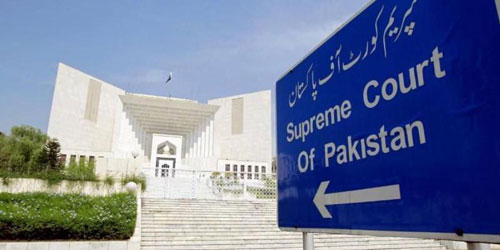Justice Syed Mansoor Ali Shah on Wednesday said that former prime minister Imran Khan could have raised objections on the amendments in the National Accountability Bureau law if he had stayed in the National Assembly.
The judge remarked this while questioning Imran Khan’s decision to abandon National Assembly, as the apex court’s three-member bench resumed the hearing on PTI chairman’s plea against the recent amendments made to the National Accountability Ordinance (NAO) 1999.
Khan, through his lawyer Khawaja Haris, had filed an application under Rule 6 of SC Rules 180 for the placing on record of documents in the petition, challenging the NAB Ordinance 1999 amendments.
“People had put their trust in Imran Khan and sent him to the [National] Assembly. How and why could he leave the assembly without the will of people in his constituency,” Justice Shah remarked as he heard the plea alongside Justice Ijaz Ul Ahsan and CJP Umar Ata Bandial.
He said that the former prime minister could have raised objections to the new NAB law if he had stayed in the assembly. The remark came in response to Imran Khan’s lawyer Khawaja Haris’ argument that the elected representatives of the people could only approach the courts if the works are not done in the respective constituencies.
At the outset of the hearing, NAB informed the court about adopting the stance of the attorney general in the case. Imran’s lawyer Haris maintained that the accountability laws have been present since 1949.
“None of the [modifications] in the accountability laws have given an exemption to the public representatives,” he said, adding that NAB laws were made ineffective through amendments. At this, Justice Shah inquired what could the apex court do if the parliament abolishes the NAB law. “Has the SC ever issued an order to restore an abolished law,” he asked. At this, Haris informed the court that the apex court had ordered to restore a law abolished in 1990.
“Your petitioner has brought the [NAB] amendments to court but he could have trusted the parliament and stayed in it,” Justice Shah remarked. At this, Haris replied that the government gets the laws passed on the basis of its majority. Meanwhile, Haris also presented arguments over the “major” changes in laws regarding plea bargain.
“The accused can seek plea bargain money back after acquittal,” Haris said. At this, CJ Bandial remarked that if this was the case, the state would have to pay billions of rupees.










